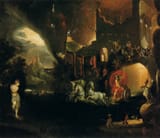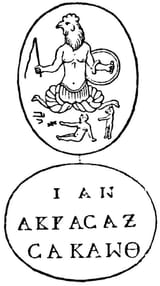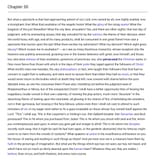>>17861089
>Do you think he didn't know it would happen? If so then he can't be called all knowing
Thomistic or Cartesian approach?
Thomistic : God can't contradict his own logic; therefore, an all-knowing entity does not see beyond the experienced choices of the thinking agents it interacts with. God is all-knowing in the confines of consistency. This does not mean that the future is uncertain, as God can certainly influence the generality of events to end up as He wants, but individual actions are overall fully autonomous
Cartesian : God is all-knowing, and if He wishes, could see the future as will happen certainly, even with independent free-willed thinkers operating beyond His Own Experience. However, to serve as a Referential for a consistent universe of His Own making, God purposefully lowers Himself to the confines of a logical world, and therefore essentially occupy the same mold as the Thomistic God for the sake of consistency. Events can still happen exactly as the Cartesian God knows it will happen, and free will is maintained in the context of a consistent logical universe, despite the a priori contradiction
In the context of your question specifically, however, both approach have the same answer: no, God did not know, because that would go against the principle of Free Will, which Adam and Eve must have had, else warnings would have not been necessary. The difference is that a Thomist would tell you that your conclusion following the fact that God did not know about Adam and Eve decision before it was decided does not make logical sense and therefore is nonsense, while a Cartesian (like me) would tell you that it's a nonsense conclusion because God is purposefully limiting Himself from the very fact that Adam and Eve, imperfect existences, exist in the same limited epistemologic system as He does.


















